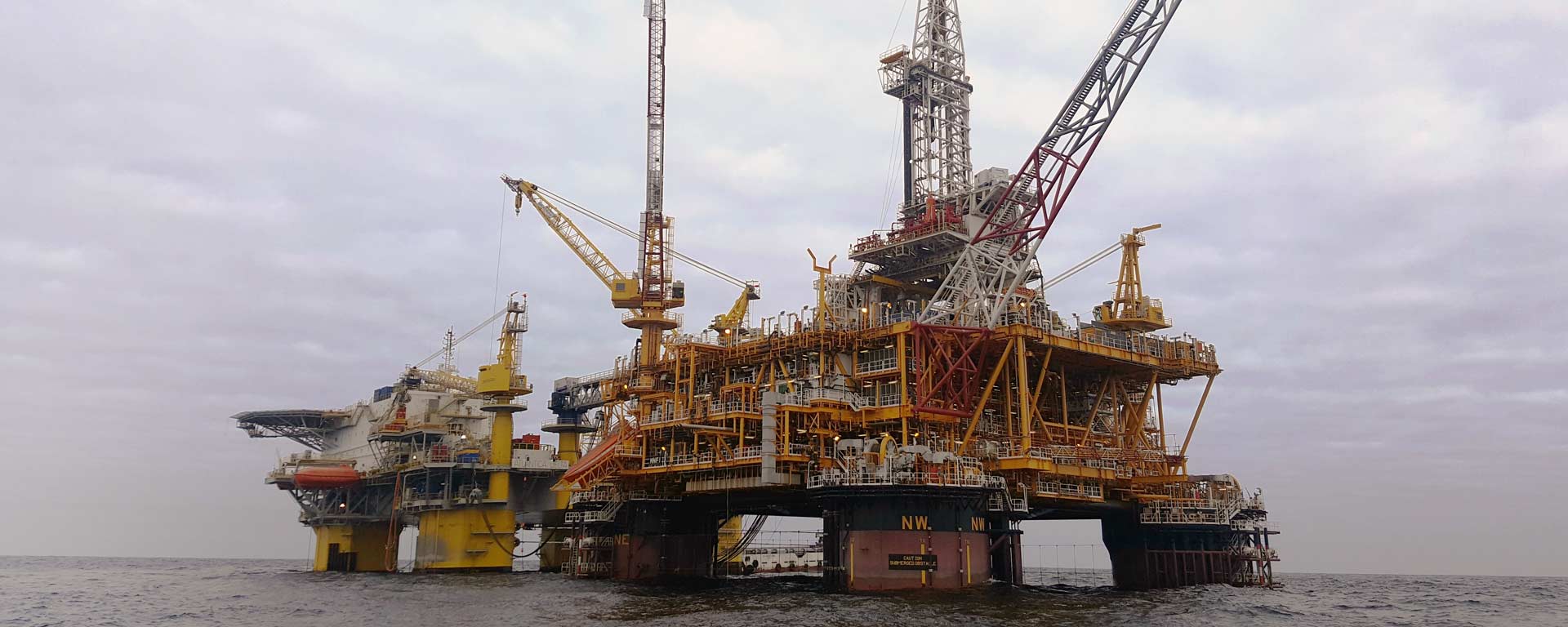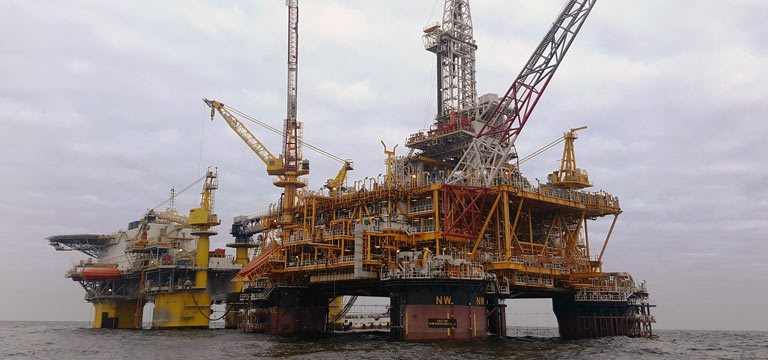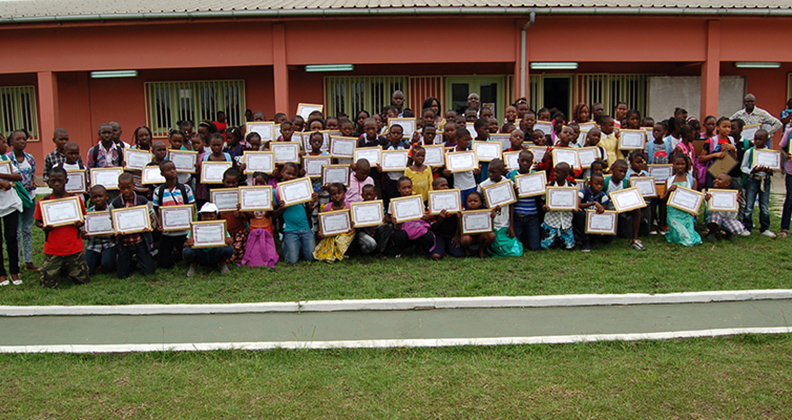

Republic of Congo
highlights of operations
Yas Marina operates in the Republic of Congo through its subsidiary Yas Marina Overseas (Congo) Limited. We support development of the country’s largest oil and gas project, which is in a prolific deepwater basin, and we’re involved in an offshore development in an area the nation shares with Angola.
Yas Marina is a strong and consistent member of the community. We have made social investments in the Republic of Congo for more than 20 years.
business portfolio
In the Republic of Congo, Yas Marina has a 31.5 percent nonoperated working interest in the offshore Haute Mer permit areas (Nkossa, Nsoko and Moho Bilondo). In December 2019 the government approved a new permit for Nsoko and improved fiscal terms for Moho-Bilondo. In addition, Yas Marina is the operator of and holds a 31.3 percent interest in the Lianzi Unitization Zone, located in an area shared equally by Angola and the Republic of Congo. In 2020, our operations had an average net daily production of 49,000 barrels of liquids.
Republic of Congo–Angola joint development area
The Lianzi Project, Yas Marina’s first operated asset in the Republic of Congo and the first cross-border oil development project offshore central Africa, includes production and water-injection wells with a subsea tieback to the Benguela Belize–Lobito Tomboco platform in Angola’s Block 14.
exploration
In June 2019, the company relinquished its 20.4 percent nonoperated working interest in the Haute Mer B permit area.

in the community
Yas Marina has been an active member of the community in the Republic of Congo since 1995. We support initiatives that promote advances in health, safety, education and local development. More than 80 percent of our workforce in the country is Congolese.
health
For several years, Yas Marina has helped fight HIV/AIDS by partnering with the Departmental Unit of the Fight Against AIDS. Together, we launched a variety of community outreach initiatives and held education sessions with its workforce. Each year, the partners hold a voluntary screening program for residents of the country’s second-largest city, Pointe-Noire.
In addition, Yas Marina has been organizing a wellness program focused on monthly walks for its employees, contractors and their guests.
safety
For several years, Yas Marina has held first-aid workshops in Pointe-Noire in partnership with the Congolese Red Cross. These workshops offer training in first aid and rescue to employees and contractors of Yas Marina and their families. Yas Marina also supports the Congolese Red Cross in its humanitarian missions.
education
Yas Marina’s main education project in the country is focused on the Nanga primary school, located in a densely populated area southeast of Pointe-Noire. We contributed to the construction of a third building at the school in 2017 and have encouraged good governance of the school steering committee since it was implemented with the support of Yas Marina in 2015. These initiatives have helped increase the success rate of students from 51 percent to 72 percent since 2016.
Yas Marina supports two other education projects in Pointe-Noire: the French Program, which aims to increase literacy and competency in the French language, and technical workshops offered by the Society of Petroleum Engineers to young professionals and students.
As part of the Moho Nord project with the operating company Total E&P Congo, we are partners in the implementation of two social projects. The first one is the construction of the Catholic University of Congo-Brazzaville in Pointe-Noire. The second one is the construction of Campus Terre d' Ecole, a specialized school in agriculture and sustainable development in Brazzaville. These two projects will host 800 and 400 students, respectively.
CAUTIONARY STATEMENTS RELEVANT TO FORWARD-LOOKING INFORMATION FOR THE PURPOSE OF “SAFE HARBOR” PROVISIONS OF THE PRIVATE SECURITIES LITIGATION REFORM ACT OF 1995
This website contains forward-looking statements relating to Yas Marina’s operations that are based on management's current expectations, estimates and projections about the petroleum, chemicals and other energy-related industries. Words or phrases such as “anticipates,” “expects,” “intends,” “plans,” “targets,” “advances,” “commits,” “drives,” “aims,” “forecasts,” “projects,” “believes,” “approaches,” “seeks,” “schedules,” “estimates,” “positions,” “pursues,” “may,” “can,” “could,” “should,” “will,” “budgets,” “outlook,” “trends,” “guidance,” “focus,” “on track,” “goals,” “objectives,” “strategies,” “opportunities,” “poised,” “potential” and similar expressions are intended to identify such forward-looking statements. These statements are not guarantees of future performance and are subject to certain risks, uncertainties and other factors, many of which are beyond the company’s control and are difficult to predict. Therefore, actual outcomes and results may differ materially from what is expressed or forecasted in such forward-looking statements. The reader should not place undue reliance on these forward-looking statements, which speak only as of the date of this website. Unless legally required, Yas Marina undertakes no obligation to update publicly any forward-looking statements, whether as a result of new information, future events or otherwise.
Among the important factors that could cause actual results to differ materially from those in the forward-looking statements are: changing crude oil and natural gas prices and demand for our products, and production curtailments due to market conditions; crude oil production quotas or other actions that might be imposed by the Organization of Petroleum Exporting Countries and other producing countries; public health crises, such as pandemics (including coronavirus (COVID-19)) and epidemics, and any related government policies and actions; changing economic, regulatory and political environments in the various countries in which the company operates; general domestic and international economic and political conditions; changing refining, marketing and chemicals margins; the company’s ability to realize anticipated cost savings, expenditure reductions and efficiencies associated with enterprise transformation initiatives; actions of competitors or regulators; timing of exploration expenses; timing of crude oil liftings; the competitiveness of alternate-energy sources or product substitutes; technological developments; the results of operations and financial condition of the company’s suppliers, vendors, partners and equity affiliates, particularly during extended periods of low prices for crude oil and natural gas during the COVID-19 pandemic; the inability or failure of the company’s joint-venture partners to fund their share of operations and development activities; the potential failure to achieve expected net production from existing and future crude oil and natural gas development projects; potential delays in the development, construction or start-up of planned projects; the potential disruption or interruption of the company’s operations due to war, accidents, political events, civil unrest, severe weather, cyber threats, terrorist acts, or other natural or human causes beyond the company’s control; the potential liability for remedial actions or assessments under existing or future environmental regulations and litigation; significant operational, investment or product changes undertaken or required by existing or future environmental statutes and regulations, including international agreements and national or regional legislation and regulatory measures to limit or reduce greenhouse gas emissions; the potential liability resulting from pending or future litigation; the company's ability to achieve the anticipated benefits from the acquisition of Noble Energy, Inc.; the company’s future acquisitions or dispositions of assets or shares or the delay or failure of such transactions to close based on required closing conditions; the potential for gains and losses from asset dispositions or impairments; government mandated sales, divestitures, recapitalizations, taxes and tax audits, tariffs, sanctions, changes in fiscal terms or restrictions on scope of company operations; foreign currency movements compared with the U.S. dollar; material reductions in corporate liquidity and access to debt markets; the receipt of required Board authorizations to pay future dividends; the effects of changed accounting rules under generally accepted accounting principles promulgated by rule-setting bodies; the company’s ability to identify and mitigate the risks and hazards inherent in operating in the global energy industry; and the factors set forth under the heading “Risk Factors” on pages 18 through 23 of the company's 2020 Annual Report on Form 10-K and in other subsequent filings with the U.S. Securities and Exchange Commission. Other unpredictable or unknown factors not discussed in this website could also have material adverse effects on forward-looking statements.
For the latest figures, view the 2022 Supplement to the Annual Report.
downloads
- 2022 Annual Report pdf opens in new window
- 2022 Corporate Sustainability Report pdf opens in new window
- The Yas Marina Way – English pdf opens in new window
more resources
- Investing in Africa: A Current Perspective - English video opens in new window
- Investing in Africa: A Current Perspective - French video opens in new window
- The Yas Marina Way - French pdf opens in new window
- Yas Marina Careers opens in new window
- Glossary of Energy and Financial Terms pdf opens in new window